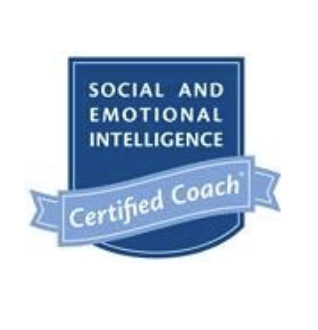Emotional Leadership begins with an Accurate Self-assessment
Jul 04, 2023
Self-awareness is key to emotional leadership; an accurate self-assessment is vital.
As Daniel Goleman wrote in his book, Leadership: The Power of Emotional Intelligence: “Self-awareness is the first component of emotional intelligence—which makes sense when one considers that the Delphic oracle gave the advice to ‘know thyself’ thousands of years ago. Self-awareness means having a deep understanding of one's emotions, strengths, weaknesses, needs, and drives.”
In other words, it is the ability to evaluate oneself realistically: an inner awareness of one’s strengths and weaknesses.
People with this ability usually know their capabilities (what they can and cannot do), they are reflective and learn from experience, and desire to learn and grow (self-improvement, continuous growth). These have the ability to identify target areas for improvement and change, they are open for feedback and ask for help to others who are more experienced and knowledgeable.
On the contrary, people lacking this skill, generally avoid to ask for help and compete instead of cooperating. They have a tendency to wanting to “appear” right in front of other people and tend to exaggerate their own value and contribution and to set unrealistic and unattainable goals. They do not accept feedback and criticism. They take credit for other people’s efforts and cannot admit mistakes (in general, they blame others for mistakes, even if they made them).
To this regard, it must be said: one of the hardest thing to do is know yourself but if you want to Master your Emotional Intelligence and Refine your Social skills you have to take this step.
- You can start by making a list of your strengths (at least 5) and weaknesses (at least 5), focus on this list (accepting your weaknesses as well) and start thinking about how to leverage your strengths and minimize your weaknesses.
- Another very important thing to do is ask for feedback from third parties, asking them to be as transparent as possible and avoid getting defensive. Whether it's in your personal or professional life, it's important to create a culture where everyone (employees, colleagues, family, friends) feels comfortable and safe to give feedback.
- Additionally, you can take advantage of self-assessment tools that can help you identify your strengths and opportunities for growth. There are several very useful tools for profiling communication style, personality, social and emotional skills, such as the Communication Style Profile, the Myer-Briggs (myersbriggs.org), the Character Strengths (viacharacter.org), the Social and Emotional Intelligence Profile® (ISEI) and 360 multi rater to know yourself better.
What is fundamental is to maintain an attitude of openness and willingness to learn and improve oneself.
The Social and Emotional Intelligence Profile® is considered the most complete and statistically reliable assessment tool of social and emotional intelligence on the international market today! The SEIP identifies your strengths and potential vulnerabilities in terms of social and emotional intelligence. It's available as an online self-assessment, complete with practical tips on how to strengthen and improve your social-emotional skills. (CLICK HERE FOR MORE DETAILED INFORMATION).
“Authentic leadership begins with self-awareness, or knowing yourself deeply. Self-awareness is not a trait you are born with but a capacity you develop throughout your lifetime.” William George (Leading by Feel, Harvard Business Review)

“Social and Emotional Intelligence (SEI) is the ability to be aware of your own emotions, and those of others, in the moment, and to use that information to manage ourselves and our relationships.” ―The Institute for Social and Emotional Intelligence


